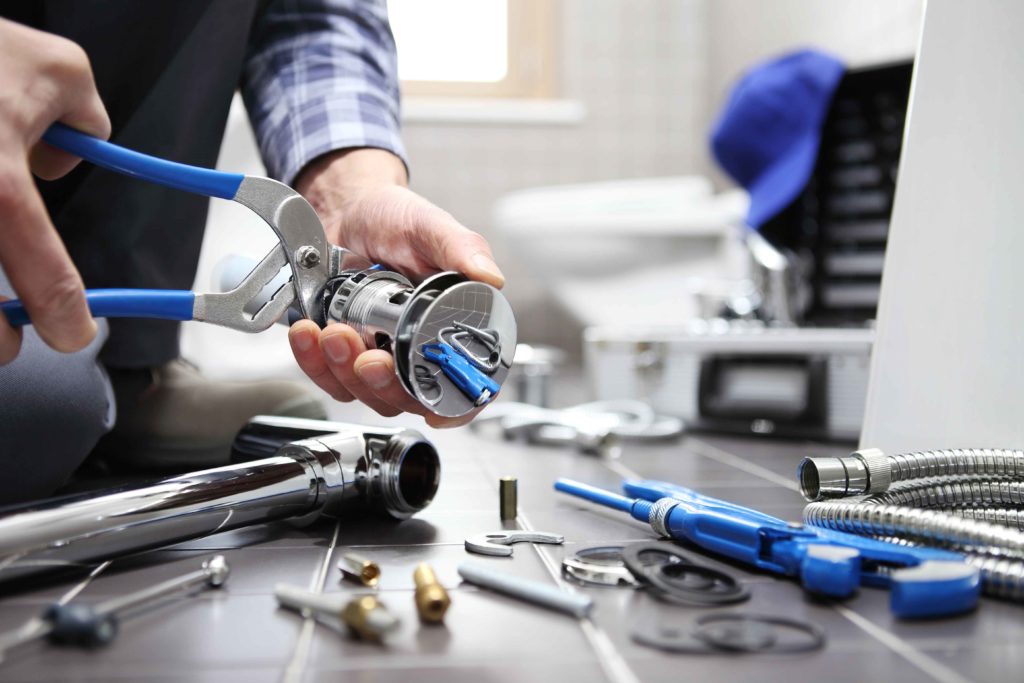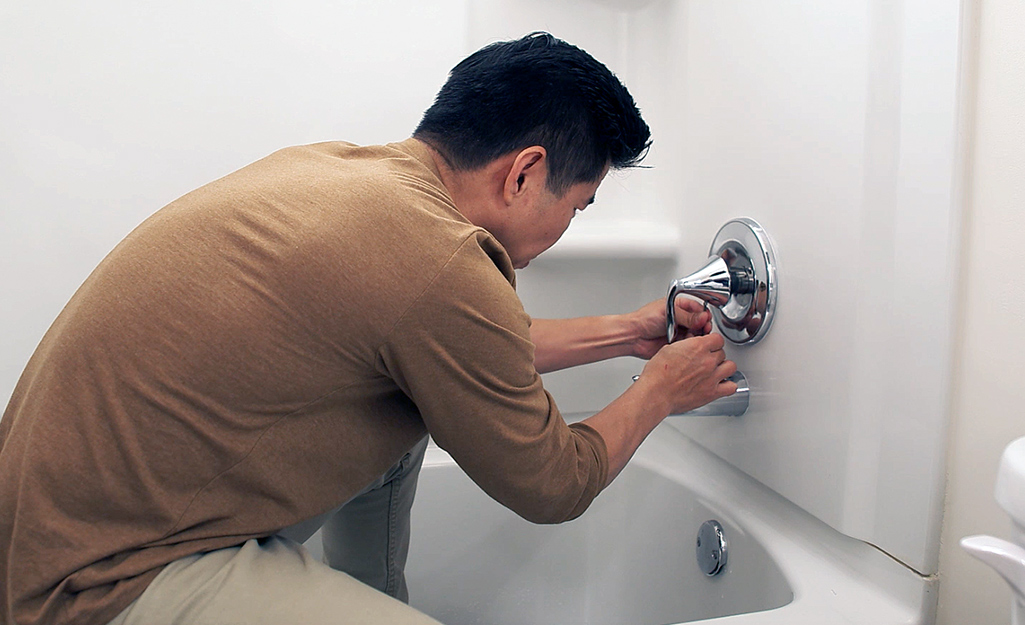Have you been trying to find critical info involving 4 Common Reasons for a Leaky Faucet?

Dripping faucets may seem like a minor trouble, yet their influence goes beyond just the nuisance of the audio. From wasting water to incurring unnecessary monetary expenses and wellness threats, overlooking a dripping faucet can result in different repercussions. In this post, we'll look into why it's critical to resolve this common household concern promptly and effectively.
Wastage of Water
Environmental Impact
Dripping faucets add significantly to water wastage. According to the Epa (EPA), a solitary tap leaking at one drip per second can squander more than 3,000 gallons of water annually. This not only strains water sources yet additionally impacts environments and wildlife depending on them.
Financial Costs
Increased Water Bills
Past the ecological effect, dripping taps can blow up water expenses significantly. The built up wastage with time converts into higher utility expenditures, which might have been prevented with timely fixings.
Prospective Home Damage
Moreover, long term leaking can lead to harm to fixtures and surfaces bordering the faucet. Water buildup can cause discoloration, rust, and even architectural issues if left neglected, leading to added repair service costs.
Wellness Worries
Mold And Mildew and Mildew Development
The continuous visibility of wetness from a trickling faucet develops a suitable environment for mold and mildew and mildew growth. These fungis not only endanger indoor air high quality but likewise posture health and wellness threats, especially for people with respiratory conditions or allergic reactions.
Waterborne Illness
Stagnant water in dripping taps can end up being a breeding ground for microorganisms and other virus, boosting the danger of waterborne diseases. Contaminants such as Legionella bacteria flourish in stagnant water, potentially resulting in serious health problems when ingested or inhaled.
Do it yourself vs. Expert Fixing
Pros and Cons of DIY Fixing
While some might try to deal with a leaking tap themselves, DIY repair services include their own set of difficulties. Without appropriate understanding and devices, do it yourself efforts can exacerbate the issue or result in incomplete repair services, lengthening the trouble.
Advantages of Working With a Professional Plumber
Hiring an expert plumber guarantees that the underlying root cause of the leaking faucet is dealt with successfully. Plumbing professionals have the proficiency and equipment to diagnose and fix tap problems effectively, saving time and reducing the risk of more damages.
Step-by-Step Overview to Repairing a Dripping Faucet
Devices Called for
Prior to attempting to repair a dripping faucet, gather the required tools, consisting of a flexible wrench, screwdrivers, replacement parts (such as washing machines or cartridges), and plumber's tape.
Usual Faucet Issues and Their Solutions
Identify the sort of tap and the particular concern triggering the drip. Typical problems include worn-out washers, corroded valve seats, or faulty O-rings. Describe maker directions or online tutorials for step-by-step guidance on repairs.
Safety nets
Routine Upkeep Tips
To avoid dripping taps, do regular maintenance such as cleaning aerators, checking for leaks, and changing worn-out components quickly. Additionally, think about installing water-saving tools or upgrading to extra effective components.
Significance of Prompt Repairs
Resolving dripping taps as soon as they're seen avoids additional water waste and prospective damage, ultimately conserving both water and cash in the future.
Impact on Residential Property Worth
Assumption of Well-Maintained Residential Or Commercial Property
Preserving a residential or commercial property in good condition, consisting of addressing upkeep issues like dripping faucets, boosts its viewed worth and value among possible purchasers or lessees.
Influence on Resale Value
Features with well-maintained plumbing components, consisting of taps, command greater resale values in the real estate market. Attending to trickling taps can contribute to a positive perception throughout home evaluations and negotiations.
Environmental Duty
Individual Contribution to Conservation
Taking obligation for taking care of trickling taps straightens with more comprehensive initiatives towards water preservation and ecological sustainability. Every person's activities jointly make a substantial influence on maintaining priceless sources.
Lasting Living Practices
By focusing on punctual repair services and embracing water-saving routines, individuals contribute to sustainable living practices that benefit both existing and future generations.
Verdict
Resolving a trickling tap exceeds mere convenience; it's an important step towards saving water, minimizing monetary expenses, and safeguarding health and property. Whether through do it yourself repair services or specialist aid, acting to repair dripping taps is a tiny yet impactful method to promote accountable stewardship of resources and add to a much healthier, much more lasting future.
How to Fix a Leaky Faucet: Step-by-Step Repair Guide
A leaky faucet may seem like a simple annoyance, but if it's not fixed promptly, that leak could cost hundreds to potentially thousands. From water damage to mold, mildew, and high water bills, even a tiny leak can be catastrophic if left unattended. Damage like this can even affect the overall value of your home, so it's important to take the right approach for leaky faucet repair. You may need the help of a plumber in some cases, but we've got a few tips you can try on how to fix a leaky faucet before calling the pros.
Four Faucet Types
When you're learning how to fix a leaky faucet, the first step is knowing what kind of faucet you're working with! There are four common types.
Cartridge Faucets
Cartridge faucets come in one- or two-handled varieties. In one-handled cartridge faucets, hot and cold water combines in a single cartridge. In the two-handled versions, hot and cold water are controlled separately and mixed in the faucet.
Ball Faucets
Ball faucets have a single lever you push up and down to adjust the pressure and rotate to change the temperature. A slotted metal ball controls the amount of water allowed into the spout.
Compression Washer Faucets
They're the oldest type of faucet, but they're still used in many homes — especially older ones. Compression faucets have two separate handles that, when turned, raise or lower the washer that seals a water valve. This valve stops water from flowing through the faucet when it is turned off.
Disc Faucets
Disc faucets rarely need to be repaired due to their maintenance-free design. The water flow is controlled by two discs — the upper one raises and lowers against a fixed lower disc, creating a watertight seal. If your disc faucet starts leaking, you may need to replace the seals or clean residue buildup from the inlets.
Fixing a Leaky Faucet
Step 1: Turn Off the Water
Whether you're learning how to fix a leaky bathtub faucet or how to fix a leaky kitchen faucet, always turn off the water supply to your working area when you're fixing a leak. The last thing you want is a flood added to your list of things to fix.
Look for the shutoff valves below your sink or around the tub and turn them clockwise to stop the water flow. If your faucet doesn't have shutoff valves, you may need to turn off the water for the whole house. Check to make sure it's off by turning the faucet on. If nothing comes out, you're ready to start the repair.
Step 2: Take Apart the Faucet
How you disassemble your faucet depends on the type of fixture you have. You can use a flathead screwdriver to remove the caps on top of the handle or handles for cartridge and compression faucets. Inside, you should see handle screws. Unscrew these with a screwdriver to remove the handle.
Disc- and ball-style faucets will typically have an inlet screw near the handle, and removing that will reveal the interior of the faucet.
Detach the Valve Stem
For cartridge- and compression-style faucets, you'll see the inner valve stem or cartridge once you remove the faucet handles. If you have a compression faucet, unscrew the brass valve stem. If you have a cartridge faucet, pull out the cartridge. If your cartridge has been in place for a while, it may require some tools or extra force to remove it due to mineral deposits.
Examine and Replace Parts
Once you've removed the parts, check them out to confirm what needs to be replaced. You may see corroded rubber washers, O-rings, stems, or cartridges. On a ball-style faucet, check the seats and springs for damage.
If you need to repair a leaky disc faucet, check the inlet and seals on the lower disc.
Once you determine what parts must be replaced, visit your local hardware store. Bring the damaged parts with you to ensure you can purchase the correct components to replace them.
Clean Valves and Faucet Cavity
If you've removed a stem or cartridge, you may notice mineral buildup in the faucet's threads. Use white vinegar to clean the valve seat by soaking it for a few minutes, then scrub it away with a soft toothbrush and rinse with warm water. You can also clean the interior of the faucet in the same way.
Reassemble the Faucet
Once your faucet is cleaned and the required parts have been replaced, it's time to reassemble it. Put the pieces back together and slowly turn the water supply back on. Doing this slowly is crucial because too much initial water pressure can damage the new hardware you've just installed.
https://homewarranty.firstam.com/blog/how-to-fix-leaky-faucet

As a fervent reader about , I assumed sharing that blog post was really useful. For those who enjoyed reading our post plz be sure to share it. Thank you so much for taking the time to read it.
Comments on “When It's Critical to Rectify a Dripping Faucet”